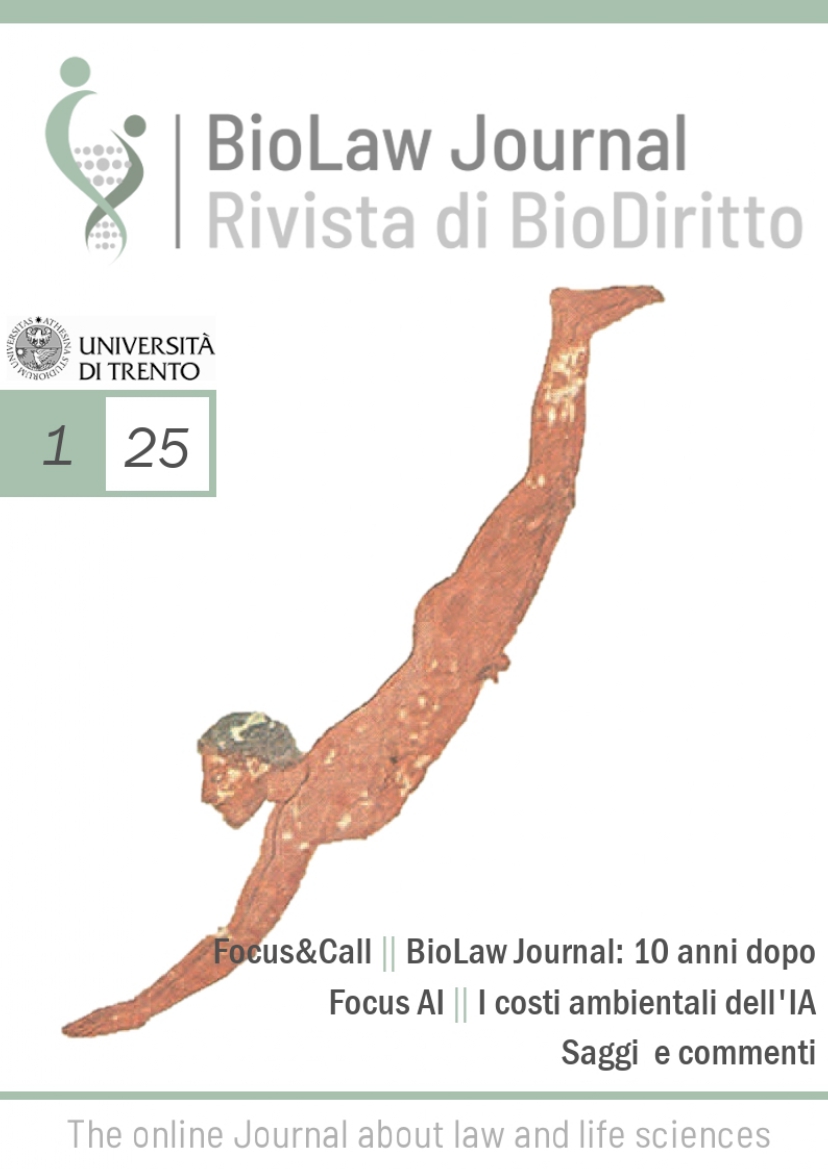Implications of the “human right to science” in the field of bio-law: accessibility, public participation and political governance.
DOI:
https://doi.org/10.15168/2284-4503-3470Keywords:
Human right to science, citizen science, science governance, participatory science, open scienceAbstract
Despite its recognition in the Universal Declaration of Human Rights since 1948, the right to science remains underdeveloped both in terms of its normative scope and its practical implementation. This paper examines its dual dimensions: passive enjoyment of scientific benefits and active participation in scientific processes. Through an analysis of international legal frameworks, such as the ICESCR and UNESCO recommendations, the study proposes the implementation of a more inclusive approach, with greater equity and citizen engagement, and the utilization of “human rights indicators” as a means of monitoring progress, addressing disparities and enhancing accountability.
Downloads
Published
How to Cite
Issue
Section
License

This work is licensed under a Creative Commons Attribution-NonCommercial-NoDerivatives 4.0 International License.





